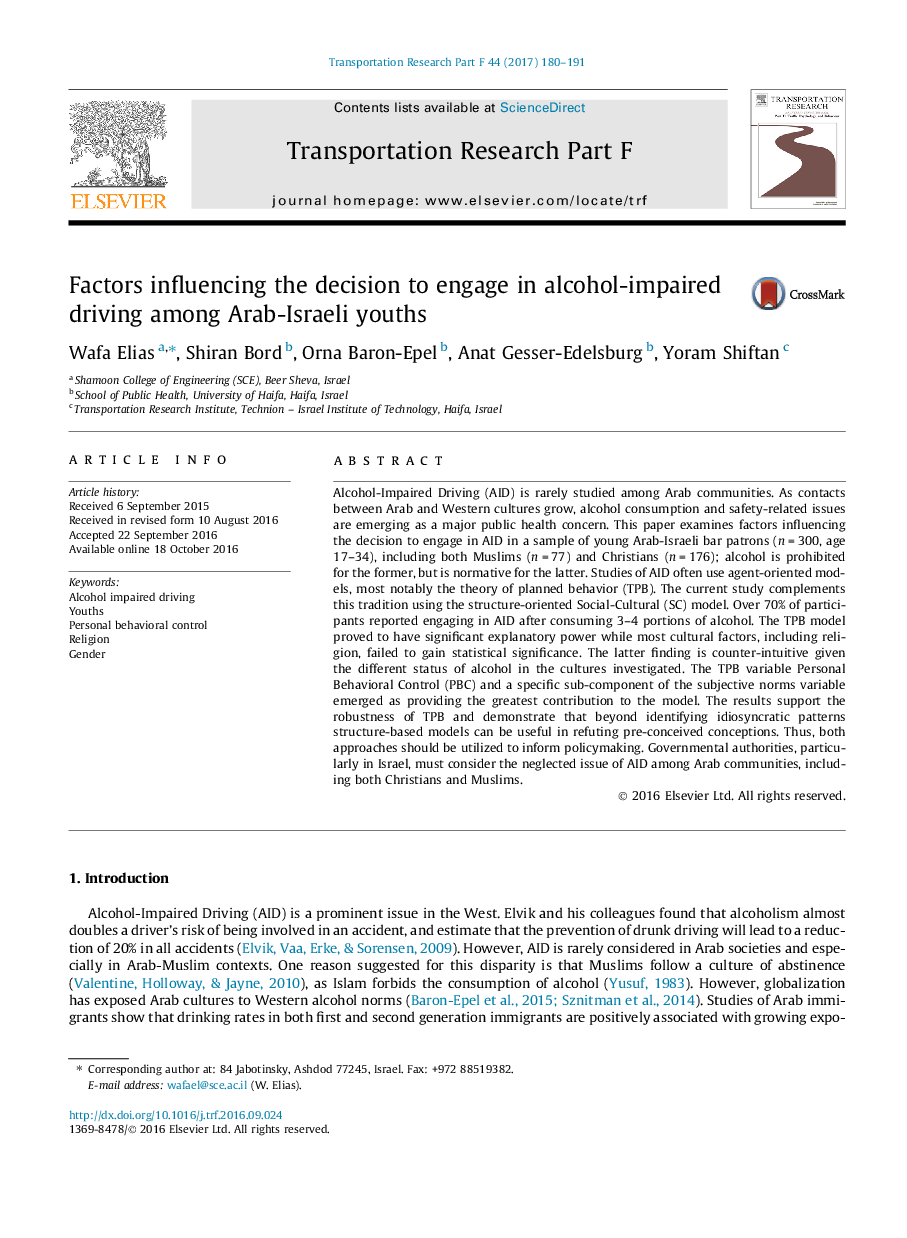| کد مقاله | کد نشریه | سال انتشار | مقاله انگلیسی | نسخه تمام متن |
|---|---|---|---|---|
| 5037464 | 1472441 | 2017 | 12 صفحه PDF | دانلود رایگان |
- Alcohol-impaired driving was studied among different Arab communities in Israel.
- The phenomenon was examined using both agent-oriented and structure-oriented models.
- Arabs in Israel are more likely to drink and drive than previously known.
- Contrary to expectations, religious affiliation had little influence on risk of AID.
- A feeling of personal behavioral control should be targeted for policy interventions.
Alcohol-Impaired Driving (AID) is rarely studied among Arab communities. As contacts between Arab and Western cultures grow, alcohol consumption and safety-related issues are emerging as a major public health concern. This paper examines factors influencing the decision to engage in AID in a sample of young Arab-Israeli bar patrons (n = 300, age 17-34), including both Muslims (n = 77) and Christians (n = 176); alcohol is prohibited for the former, but is normative for the latter. Studies of AID often use agent-oriented models, most notably the theory of planned behavior (TPB). The current study complements this tradition using the structure-oriented Social-Cultural (SC) model. Over 70% of participants reported engaging in AID after consuming 3-4 portions of alcohol. The TPB model proved to have significant explanatory power while most cultural factors, including religion, failed to gain statistical significance. The latter finding is counter-intuitive given the different status of alcohol in the cultures investigated. The TPB variable Personal Behavioral Control (PBC) and a specific sub-component of the subjective norms variable emerged as providing the greatest contribution to the model. The results support the robustness of TPB and demonstrate that beyond identifying idiosyncratic patterns structure-based models can be useful in refuting pre-conceived conceptions. Thus, both approaches should be utilized to inform policymaking. Governmental authorities, particularly in Israel, must consider the neglected issue of AID among Arab communities, including both Christians and Muslims.
Journal: Transportation Research Part F: Traffic Psychology and Behaviour - Volume 44, January 2017, Pages 180-191
